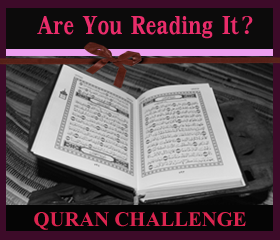As-Salamu’alaikum:
One thing we as parents know about raising children is that all children love stories (including many, if not most adults)! Reading is fundamental for a child’s development at every stage of their life, not just for developing their language skills, but also to develop their creative thinking. One of the challenges for Muslims living here in the west is to screen the content of these stories for their children. Some may consider us to be prudes for even discussing this topic, dismissing our concerns as being “fanatic”, “wahhabi”, “suffocating”, “overbearing”, but the truth of the matter is that quite a bit of children’s stories have content that are questionable by Islamic standards.
How so? Magic is a common staple of children’s stories for centuries (e.g. Snow White, Cinderella, Sleeping Beauty, Pinocchio – which also happen to be standard Disney cartoons that most children watch), but the reality is that magic is HARAM in Islam, and should not be presented to children as being something that is glorified, or a path to immediate success. This is precisely what the allure of magic is for non-Muslims: It is a quick and easy way to become successful, no hard work, no du’a, and everything is for this present life (i.e. no concept of the Akhira). No du’a, no trust in ALLAH, no hard work, no patience. Nothing.
The problem with this, is that if our children are brainwashed with these false images, they will become disenchanted with Islam, and only focus on attaining worldly benefit. When we look at the stories of any of the Prophets, we see that there is a constant struggle against evil, their is a need for patience, and a requirement to have trust in ALLAH, and ALLAH alone. No wishing upon a star (which would be kufr), nor asking some phantom “fairy god mother” (also kufr, and who is neither a “fairy”, not a “god”, and nor your mother). As children get older, they read “The Wizard of Oz”, and when they get a little older, they come across “Hairy Potter”. The root of this problem is that we as parents first need to be aware of the magnitude of the concept of magic in Islam. If we are to be our children’s teachers, then we need to first and foremost become students ourselves, and learn the fundamentals of our beliefs. It is only by being proactive can we properly educate our children.
This issue is not just restricted to the concept of magic alone. Take for example the story of “Robin Hood”. Most people may not be aware, but the entire premise of this story is that this is all happening during the Crusades, and Robin is a loyalist to King Richard “the Lionheart”, an avowed enemy of Islam, killer of countless Muslims (and a homosexual). Yet, these elements are glossed over, and characters like “Robin Hood” are considered heroes because they stole from the rich and gave to the poor (and Muslims are none the wiser). Even if we are to ignore the historical elements that relate to “Robin Hood”, we must also know that in Islam, good old Robin Hood would have his hand chopped off, because stealing is not justified, even if it is from the rich. Being rich is not a crime, but stealing is. Period.
So why the rant Abu Maryam? What is the point of all this? What are you going to do about it? Well, AlhamduLILLAH, as I mentioned above, we as parents must be proactive in raising our children, and we also would like to present a solution, along with identifying the problem. Yes, we are not living in an Islamic society, which means naturally we are going to be bombarded with many things that are foreign, and of course, Haram in Islam. Can we shield our children from this haram their whole lives? Are children never to read a book without you screening it for them? One solution that we hope more and more parents take up is to write and publish their own stories. In this day and age of Information Technology, the Internet, eBooks, smartphones and tablets, it is now easier than ever to publish your own story without having to formally approach a publishing company. With this, parents can now come up with their own stories for their own children, and perhaps make some money along the way by sharing with other parents. To help you get started, here are two links to articles that we hope will be helpful in writing and publish your own stories:
1. Pixar’s 22 rules for storytelling
2. How to make an eBook with iBooks Author
“But Abu Maryam, I’m not a professional writer, how can I write a story?”
Simple, take folk tales from your country of origin, and give it your own twist, or take an existing story that we are familiar with today, and create your own version. Instead of “Robin Hood”, why not a story of a Muslim character who is trying to protect Salahuddin’s (a REAL Hero of Islam – May ALLAH have Mercy on Him) kingdom in his absence against a conniving traitor working for the crusaders? There are lots of ideas that are out there, we just need to go discover them, and then put them to use. The first step is to learn our own Islamic history, and then write stories of characters living during those glory days (like Moorish Spain, Constantinople after the Ottoman conquest, the Crusades).
There are enough free tools out there to help you with editing, and proof reading, as well as many sites that offer free stock images and photography. Even if your attempt is mediocre, make no mistake, your child will be so proud of you to have come up with something that is professionally made. That is a victory by itself, as your child’s respect for you will have increased! If enough parents take time to take up this initiative, parents of latter generations will no longer have to turn to literature containing haram elements, because they will have a healthy staple of good, entertaining, and HALAL literature for their children to choose from (InshaALLAH).
We ask ALLAH to make things easy for you and your families, Ameen.
Take care.
Was-Salamu’alaikum
Abu Maryam.
P.S. If you know of any resources that you wish to share with others, please send them to us, and we’ll be happy to post it on our site, InshaALLAH! It is our hope that one day, enough concerned parents will be able to come up with their own stories that are just as good, if not better than those that are in the mainstream today.




